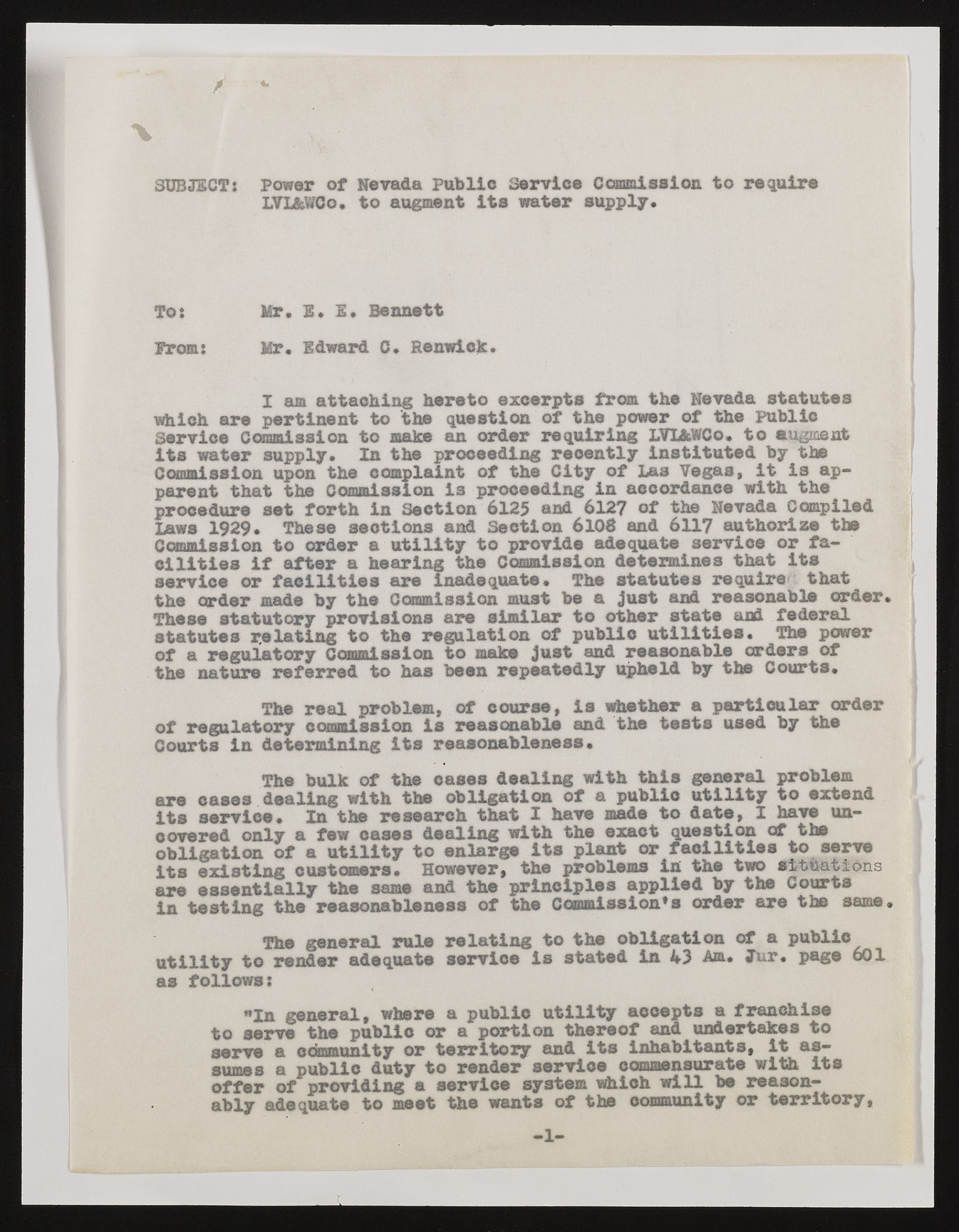Copyright & Fair-use Agreement
UNLV Special Collections provides copies of materials to facilitate private study, scholarship, or research. Material not in the public domain may be used according to fair use of copyrighted materials as defined by copyright law. Please cite us.
Please note that UNLV may not own the copyright to these materials and cannot provide permission to publish or distribute materials when UNLV is not the copyright holder. The user is solely responsible for determining the copyright status of materials and obtaining permission to use material from the copyright holder and for determining whether any permissions relating to any other rights are necessary for the intended use, and for obtaining all required permissions beyond that allowed by fair use.
Read more about our reproduction and use policy.
I agree.Information
Digital ID
Permalink
Details
More Info
Rights
Digital Provenance
Publisher
Transcription
i i % SUBJECT: Power of Nevada Public Service Commission to re quire LVL&WCo. to augment its water supply. To: Mr. E. 1. Bennett From: Mr. Edward C. Renwick. I am attaching hereto excerpts from the Nevada statutes which are pertinent to the question of the power of the public Service Commission to make an order requiring LVLkWCo. to augsoent its water supply. In the proceeding recently instituted by the Commission upon the complaint of the City of Las Vegas, it is apparent that the Commission is proceeding in accordance with the procedure set forth in Section 6125 and 6127 of the Nevada Compiled Laws 1929. These sections and Section 6108 and 6117 authorize the Commission to order a utility to provide adequate service or facilities if after a hearing the Commission determines that its service or facilities are inadequate. The statutes require that the order made by the Commission must be a just and reasonable order. These statutory provisions are similar to other state and federal statutes relating to the regulation of publio utilities. The power of a regulatory Commission to make just and reasonable orders of the nature referred to has been repeatedly upheld by the Courts. The real problem, of course, is whether a particular order of regulatory commission is reasonable and the tests used by the Courts in determining its reasonableness. The bulk of the eases dealing with this general problem are cases dealing with the obligation of a publio utility to extend its service* In the research that I have made to date, I have uncovered only a few cases dealing with the exact question of the obligation of a utility to enlarge Its plant or faeilitias to serve its existing customers. However, the problems in the two situations are essentially the same and the principles applied by the Courts in testing the reasonableness of the Commission’s order are the same. The general rule relating to the obligation of a publio utility to render adequate service is stated in 43 Am. Jur. page 601 as follows: «In general, where a public utility accepts a franchise to serve the public or a portion thereof and undertakes to serve a community or territory and its Inhabitants, it assumes a public duty to render service commensurate with its offer of providing a service system which will be reasonably adequate to meet the wants of the community or territory, -1-

